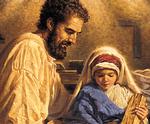Make your gift today!
Help keep Catholics around the world educated and informed.
Already donated? Log in to stop seeing these donation pop-ups.
Catholic World News News Feature
Synod of Bishops: Fourth General Congregation October 09, 2008
The Holy See has released summaries of the interventions delivered Tuesday afternoon during the fourth general congregation of the Synod of Bishops. Cardinal George Pell of Sydney, one of the synod’s three president delegates, presided over the fourth general congregation on Tuesday morning, which began with a prayer for the synod’s success and concluded with the praying of the Angelus. Eleven synod fathers made interventions (remarks):
-- Echoing comments made by Australian Archbishop Mark Coleridge on Tuesday morning, Mauritian Bishop Maurice Piat said that it is useless to preach on doctrine and morals apart from the initial proclamation of the kerygma, or saving Gospel of Christ.
-- Criticizing the synod working document’s almost complete lack of reference to Eastern Catholics, Syro-Malabar Bishop George Punnakottil of India emphasized that Scripture has a spiritual meaning as well as a historical meaning. ‘Reasoning is not enough. Spiritual contemplation of the Word is required. True theologians are true saints. Reading presupposes a state of prayer. Prayer illumines the mind to grasp what one reads. Reading of the Word should lead to the substantial Word, that is Jesus.’
-- Argentine Archbishop Guillermo Jose Garlatti said that an emphasis on salvation history would provide a unifying theme to the synod’s working document.
-- Bishop Sylvester Carmel Magro, apostolic vicar of Benghazi (Libya), emphasized that many Catholics are unaware that the Magisterium determined the canon of Sacred Scripture. Quoting the American theologian Scott Hahn, he said that ‘it is the Church which came before the Scriptures; the Church that produced the Scriptures with divine assistance, and that preserved their integrity through the threats of persecution and heresy.’
-- Colombian Bishop Jose Gomez Rodriguez said that man is created for dialogue in the sense that he is created in order to listen to God’s Word. He added, ‘A person attains his fundamental identity and dignity in listening to the Word of God and in his extraordinary ability to respond to this with his whole being, intelligence and will … The interpretation of the Bible is beyond the caprices of modern relativism, and therefore is uncomfortable for many.’
-- Referring to several passages of the Old Testament, Philippine Archbishop Orlando Quevedo told the synod fathers that God’s Word is proclaimed particularly to the poor. The Church in Asia, he said, is marked by small communities that ‘listen to the Word of God, reflect on the Word, pray over the Word, and discern together how to apply the Word to their daily lives.’
-- Father Giorgio Nalin, superior general of the Rogationists, called for a deeper reflection on the relation between Scripture and the gradual unfolding of each Christian’s vocation. ‘The Word of God,’ he said, ‘lights up the vocational path of each person.’
-- Quoting ‘the great African bishop’ St. Augustine, Bishop Desiderius Rwoma of Tanzania emphasized the importance of the homily. ‘If we speak of people being lukewarm,’ he said, ‘concerning matters of our faith and the phenomenon of religious sects which are spreading at an alarming speed in many parts of the world, the causes for this can possibly be traced back to lack of good and proper preaching.’
-- Indonesian Archbishop Anicetus Sinaga discussed initiatives to promote Bible reading in his nation.
-- Lamenting ‘attempts to marginalize the sacred texts as bearers of meaning only insofar as they are myths, with no historical character and destined only for the naïve,’ Bishop Salvatore Fisichella, president of the Pontifical Academy for Life and rector of the Pontifical Lateran University, reminded the synod fathers that the Word of God to Sacred Scripture.
Following these interventions, a message from the General Secretary of the World Council of Churches, the Rev. Samuel Kobia, was read. Rev. Kobia wrote that the synod’s theme ‘holds the promise of deep spiritual renewal for the mission of the church’ and assured the synod fathers of his prayers.






